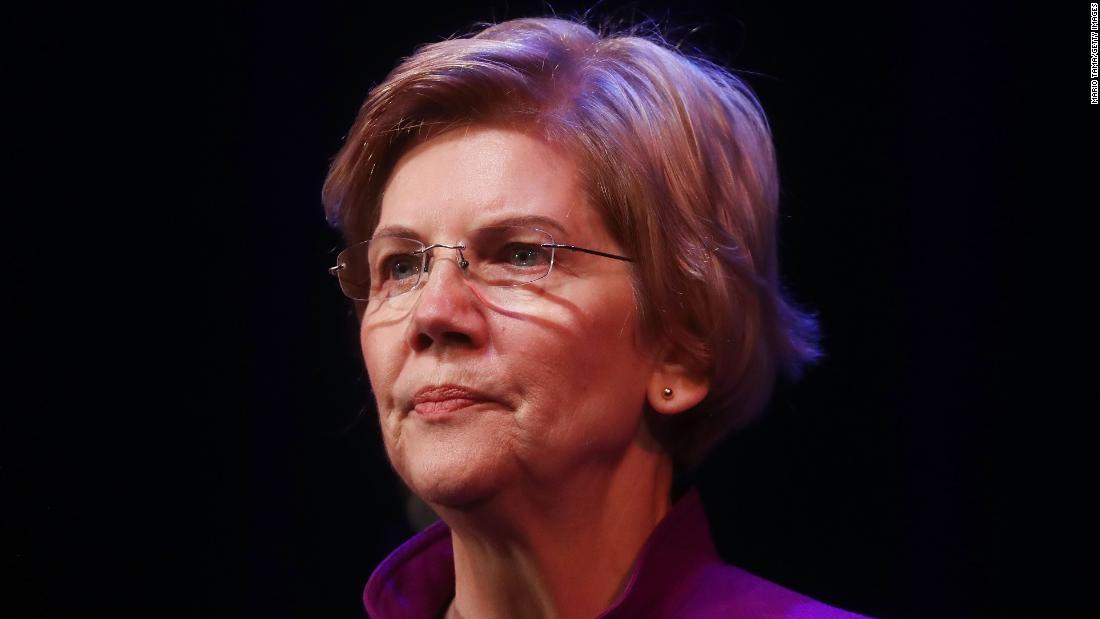
Poll of the week: A University of New Hampshire poll finds Sen. Bernie Sanders leading the 2020 New Hampshire Democratic primary with 26% to former Vice President Joe Biden's 22%. Sen. Kamala Harris rounds out the top three with 10%. Sen. Elizabeth Warren comes in fourth with 7%.
This mostly mirrors the average of polls of the contest taken during February, which placed Biden at 25%, Sanders at 24%, Harris at 12% and Warren at 8%.
What's the point: You can make an argument that these numbers are good for Biden, Sanders or Harris. Biden is holding his own in the state next to Sanders' home state of Vermont. Sanders is doing better in the first in the nation primary than he's doing nationally. Harris just came on the national scene and is regularly breaking double digits in this key state.
These numbers are definitely not good for Warren, however. She's in fourth place.
Warren almost certainly needs a first or second place finish in New Hampshire if she wants to succeed nationally. The Granite State is right next to her home state of Massachusetts. Massachusetts candidates usually gain an edge in the New Hampshire primary compared to how they do nationally. Paul Tsongas, John Kerry and Mitt Romney all did well in New Hampshire compared to other early contests.
Now if Warren wasn't so well known by New Hampshire voters that would be one thing. Polling indicates, however, that Warren has near universal name recognition in the state.
It also wouldn't be so bad for Warren if she were rising in polls. If anything, Warren seems to be going backward. Over the course of 2018, Warren averaged a little over 14% in New Hampshire surveys. That is, her support seems to have dropped in half since forming her campaign.
It would be easy to think that Sanders is taking support from Warren. They're both quite progressive and from neighboring states to New Hampshire. It may the case that each are hurting each other, but Sanders is likely not the reason Warren's drop from last year.
When you look at the trendlines, Sanders has dipped a little compared to last year. Sanders averaged a little more than 27% in the polls last year compared to 24% now.
Instead, Warren seems to be losing at least some of her support to Harris. Harris averaged only 3% in New Hampshire during 2018. She is now 8 points higher now at 11% in the average poll. That's a sign of a successful launch to a campaign, which Warren clearly lacked.
Now, it's obviously very early. Democratic voters aren't anywhere close to settling on a candidate. These poll numbers can and will likely change.
Yet, there are some clear negatives in the numbers for Warren beyond just the horserace. At 13%, she has by far the highest percentage of Democratic voters in New Hampshire who say they won't vote for under any circumstance. Of all of the declared candidates, she has the highest unfavorable rating among New Hampshire Democrats.
Warren's relatively weak New Hampshire numbers perhaps shouldn't be so surprising. New Hampshire shares a media market with Boston. Warren's polling in her home state has been shockingly weak.
Put another way, lack of support for Warren from New Hampshire Democrats isn't from lack of knowledge. New Hampshire Democrats, for the moment, know what Warren is about and aren't buying it. Warren will need to change many minds if she hopes to succeed in 2020.
No comments:
Post a Comment